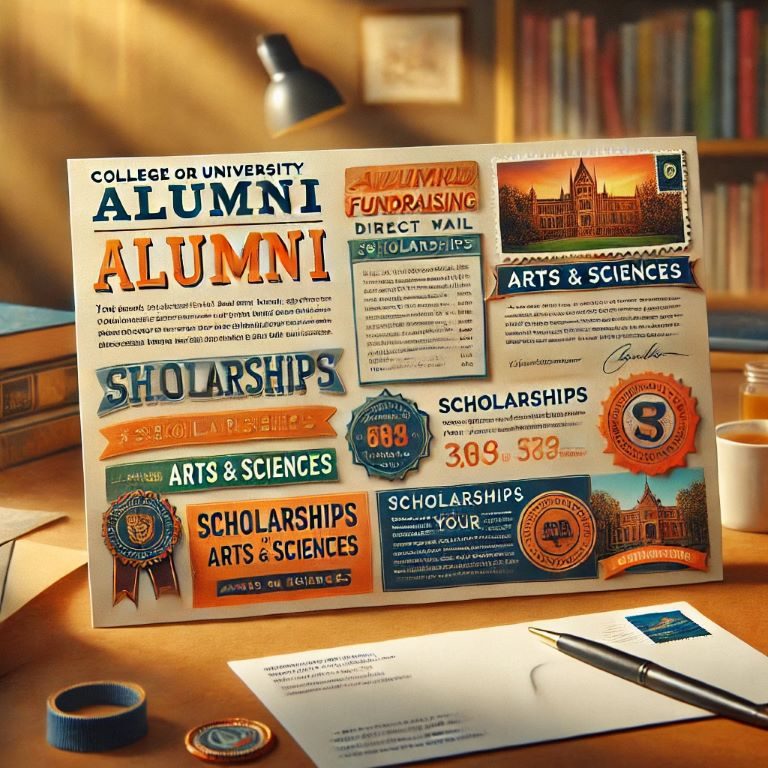As colleges and universities face shrinking government funding, the need for effective fundraising strategies has never been greater. For educational institutions seeking to build donor support, research shows the power of relationship-based fundraising. This insight is particularly valuable for direct mail campaigns that aim to deepen alumni engagement and increase giving rates.
At NextPage, we understand the importance of targeting and personalization in direct mail. By partnering with academic departments and creating campaigns that reflect the interests and connections of potential donors, colleges and universities can foster a greater sense of community, ultimately leading to stronger fundraising outcomes. According to an influential study published in the International Journal of Higher Education, focusing on personalized, department-level relationships can be a game changer in university fundraising efforts, especially in arts and humanities fields.
Why Relationship-Based Fundraising Works
The study by Dr. Yuha Jung and Dr. Min-Young Lee highlights how department-specific fundraising can significantly impact alumni giving. Traditional university fundraising is often centralized, but research indicates that alumni feel more connected to the departments where they studied than to the broader institution. By acknowledging these connections, colleges can enhance alumni engagement and improve fundraising success. For example, the study found that *satisfaction* and *relationship quality* were the strongest predictors of giving intentions among alumni. Departments that build and maintain high-quality relationships with alumni and current students tend to see higher intentions to give, with these intentions doubling when alumni are “very satisfied” compared to only “satisfied”.
Key Factors in Relationship-Based Fundraising
The study identified five critical factors that influence alumni giving, which are essential to consider when designing direct mail campaigns:
1. Satisfaction: Alumni who are highly satisfied with their experiences are more likely to give back. Satisfaction encompasses interactions with faculty, the quality of education, and a sense of belonging.
2. Relationship Quality: Alumni who feel closely connected to their departments, rather than to the broader university, are more inclined to donate. This sense of belonging reinforces communal giving.
3. Awareness and Knowledge: Educating alumni about fundraising goals and the department’s needs is crucial. Awareness campaigns that highlight specific departmental initiatives often see higher engagement rates.
4. Involvement: Involving alumni in department activities early—through events, networking opportunities, or newsletters—lays the foundation for future donations. Departments that keep alumni engaged have higher giving rates.
5. Targeted Appeals: Alumni give when they feel personally invested. Campaigns that emphasize the direct impact of donations, especially scholarships or projects tied to their field, resonate more.
Applying Relationship-Based Insights to Direct Mail Campaigns
For printing and direct mail services, the implications of relationship-based fundraising are profound. Here’s how colleges and universities can use these insights in their direct mail strategy:
– Personalize the Message: Start by tailoring the message to reflect the recipient’s unique relationship with their department. Use alumni stories, testimonials, or updates from faculty members to create a sense of belonging.
– Highlight Specific Initiatives: Direct mail is an ideal platform for showcasing department-specific goals. For instance, an arts department could feature an ongoing scholarship program or highlight recent student achievements.
– Use Variable Data Printing: Variable data printing allows you to personalize direct mail pieces with the recipient’s name, graduation year, and department. This approach increases the likelihood of engagement and encourages alumni to support their academic home.
– Encourage Involvement Beyond Donations: Use mailers to invite alumni to attend upcoming events, volunteer, or mentor students. These touchpoints create a continuous relationship that can lead to future giving.
Proven Results: Doubling Intentions to Give
As the study demonstrated, relationship-based fundraising can significantly increase giving intentions. When alumni feel “very satisfied,” their likelihood to give doubles. Universities that focus on maintaining a strong relationship with alumni can expect not only higher giving rates but also a greater willingness among alumni to recommend giving to others. With relationship-based direct mail strategies, colleges can effectively engage both current students and young alumni, filling a gap in understanding and nurturing young donors’ motivations.
The study was published in 2019 in the International Journal of Higher Education and can be found at: https://files.eric.ed.gov/fulltext/EJ1219017.pdf.
Partnering with NextPage for Effective Direct Mail Campaigns
Direct mail offers a powerful way for academic departments to foster meaningful relationships with alumni. At NextPage, we help colleges and universities implement these insights with precision and impact. Our services ensure your message reaches the right people at the right time, transforming a printed piece into a valuable connection that supports your goals. By combining relationship-focused content with cutting-edge print technology, we help academic institutions drive real results in alumni engagement and giving.
Want to learn more about how NextPage can help your college or university succeed in fundraising? Contact us today to discover how we can support your direct mail needs and create campaigns that build long-term donor relationships.

